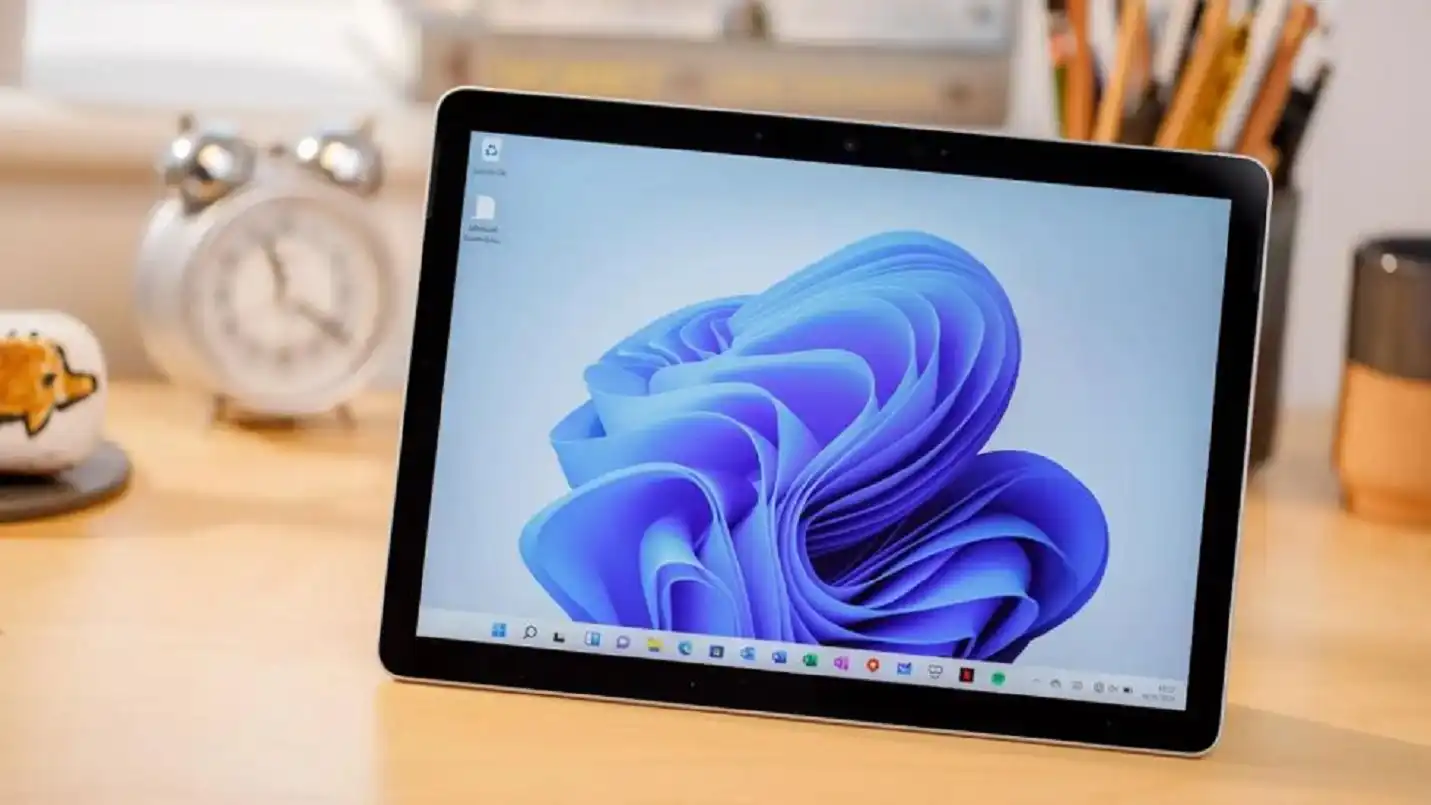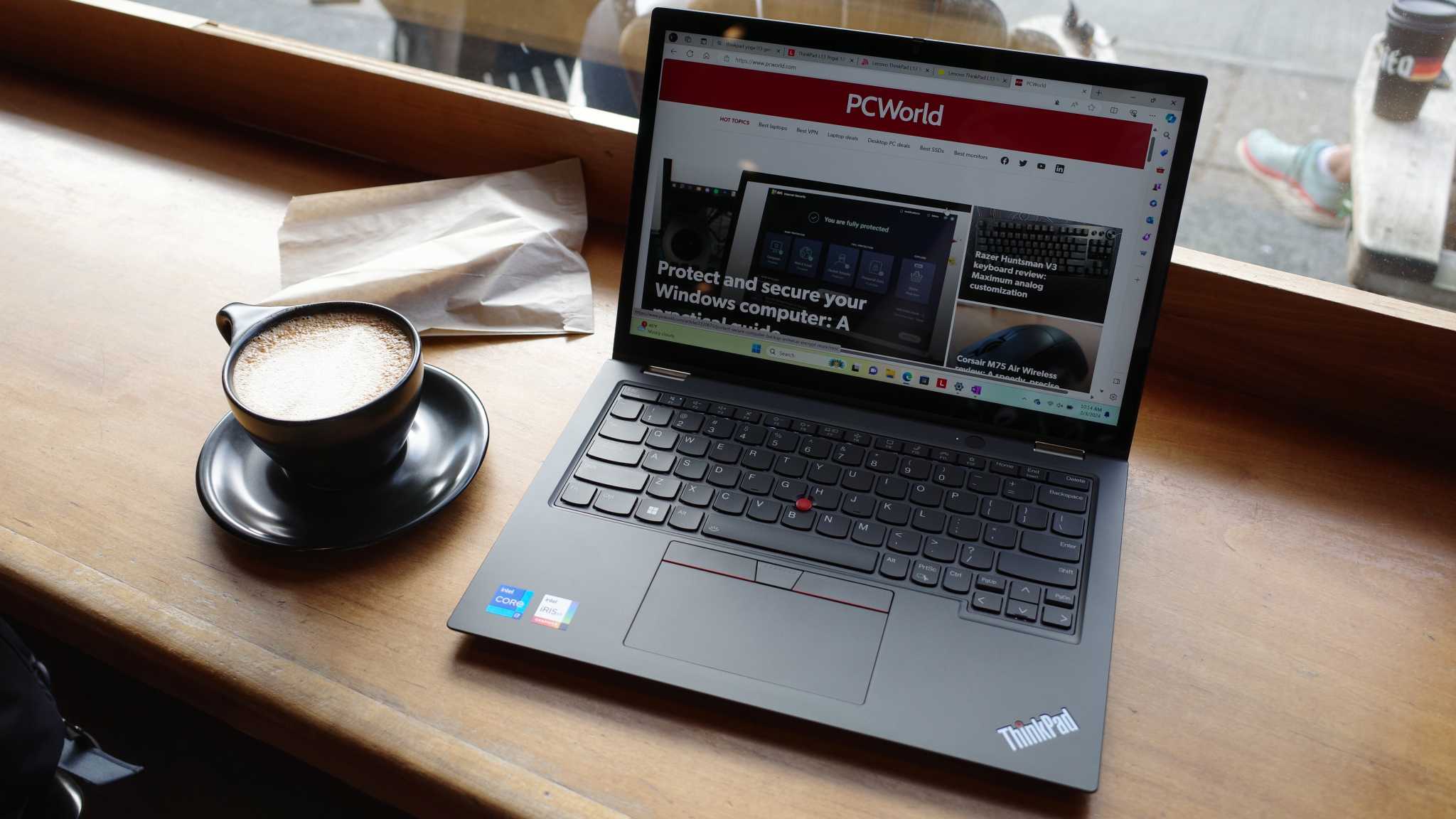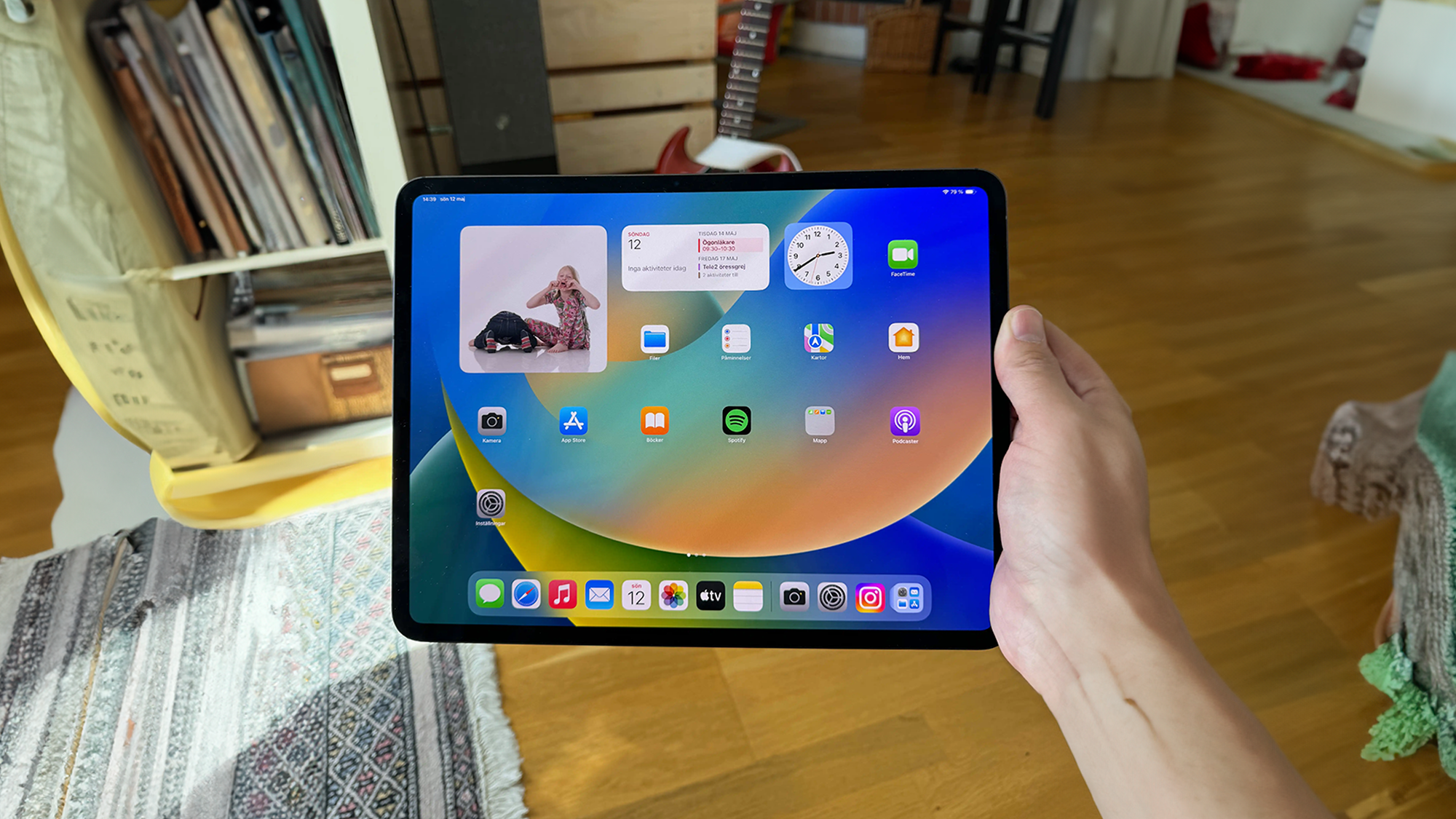Start off right with solid security tools, productivity software, and other programs that every PC needs.
The best free PC software programs aren’t about the cost (or lack thereof), they’re about a fresh opportunity—collections of code that put the dumb hardware in your computer to smart use, tools that can accomplish anything from balancing your household budget to helping cure cancer.
Stocking your PC is an intensely personal task. But some programs are so helpful that we heartily recommend them to everybody. These free PC programs—a mix of must-haves and delightful auxiliary apps—deserve a place on almost any computer. There are times when a paid alternative makes sense, however. We’ve pointed out the circumstances where an upgrade over the free offering is warranted, along with our recommendation for the category.
And if you’re selecting these programs as part of breaking in an all-new PC, be sure to check out our guide to how to set up new computer up the right way. Let’s dig in!
A better browser

Microsoft
Before you roll up your sleeves and start slinging software around, make sure to snag your web browser of choice. Using Windows 10 and 11’s default Edge browser when you’re accustomed to something else feels like wearing somebody else’s shoes. (Blech.)
That said, our money’s actually on Edge if you’re not a Chrome die-hard — it’s pretty great in its own right. But hey, browsers are all all free! Try before you “buy”—we’ve published some extensive looks at compelling features you’ll only find on Edge, Firefox, and Vivaldi (a.k.a. the enthusiast’s browser).
Is it worth it to upgrade to a paid version?
Nah.
Ninite
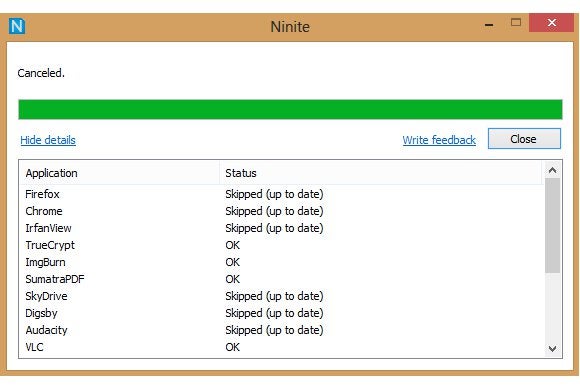
Ninite makes loading up a new computer a breeze. Simply head to the Ninite website, select which free software you’d like to install on your PC—it offers dozens of options, including many of the programs named here—and click Get Installer to receive a single, custom .exe file containing the installers for those programs. Run the executable, and Ninite installs all of them in turn, and it automatically declines the offers for bundled bloatware so many free apps try to sneak in. No muss, no fuss, no hassle.
Is it worth it to upgrade to a paid version?
No. For most users there really isn’t a worthy alternative, and even if there was it wouldn’t justify the cost. That said, there is a paid complementary utility called Ninite Updater that costs $10 per year that makes it easy to keep all your desktop programs up-to-date.
Unchecky
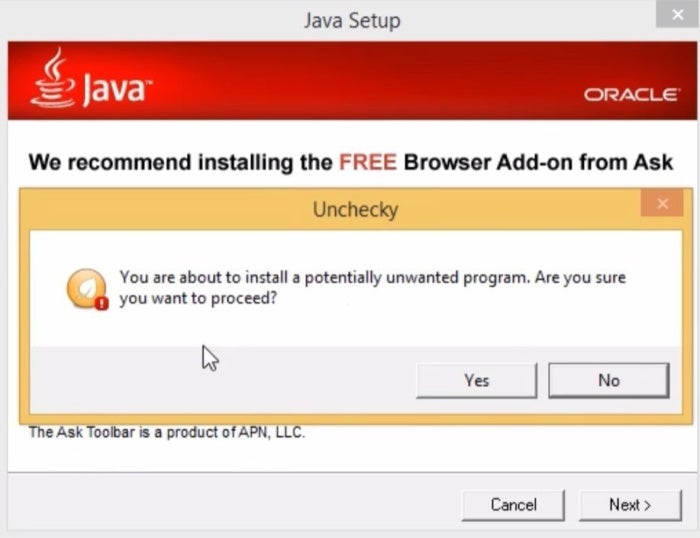
Accidentally installing unwanted bloatware is one of the greatest dangers of free software, the sanctity of Ninite aside. For everything else, use Unchecky. Unchecky automatically unchecks all of the checkboxes when you’re trying to install a program, and warns you if shady software is trying to sneak something ugly onto your machine.
Is it worth it to upgrade to a paid version?
No. Again Unchecky is in a league unto itself, and while you might find similar capabilities bundled in an antivirus program, there’s little reason to look elsewhere.
Microsoft PowerToys
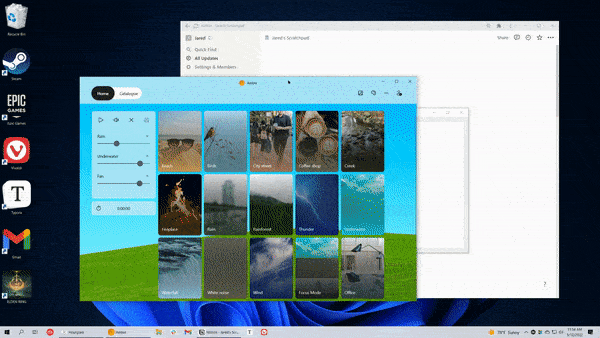
Jared Newman / Foundry
If you want to fine-tune your Windows experience, be sure to check out Microsoft’s killer PowerToys suite. Ostensibly for enthusiasts, PowerToys is absolutely loaded with tools designed to streamline all sorts of PC hassles. It offers utilities to batch resize images, quickly find your mouse cursor, always keep a chosen window on top of your others, remap your keyboard keys, show file previews in File Explorer, and a whole lot more. And you should definitely be using FancyZones, Microsoft’s killer multitasking app.
Trending for you
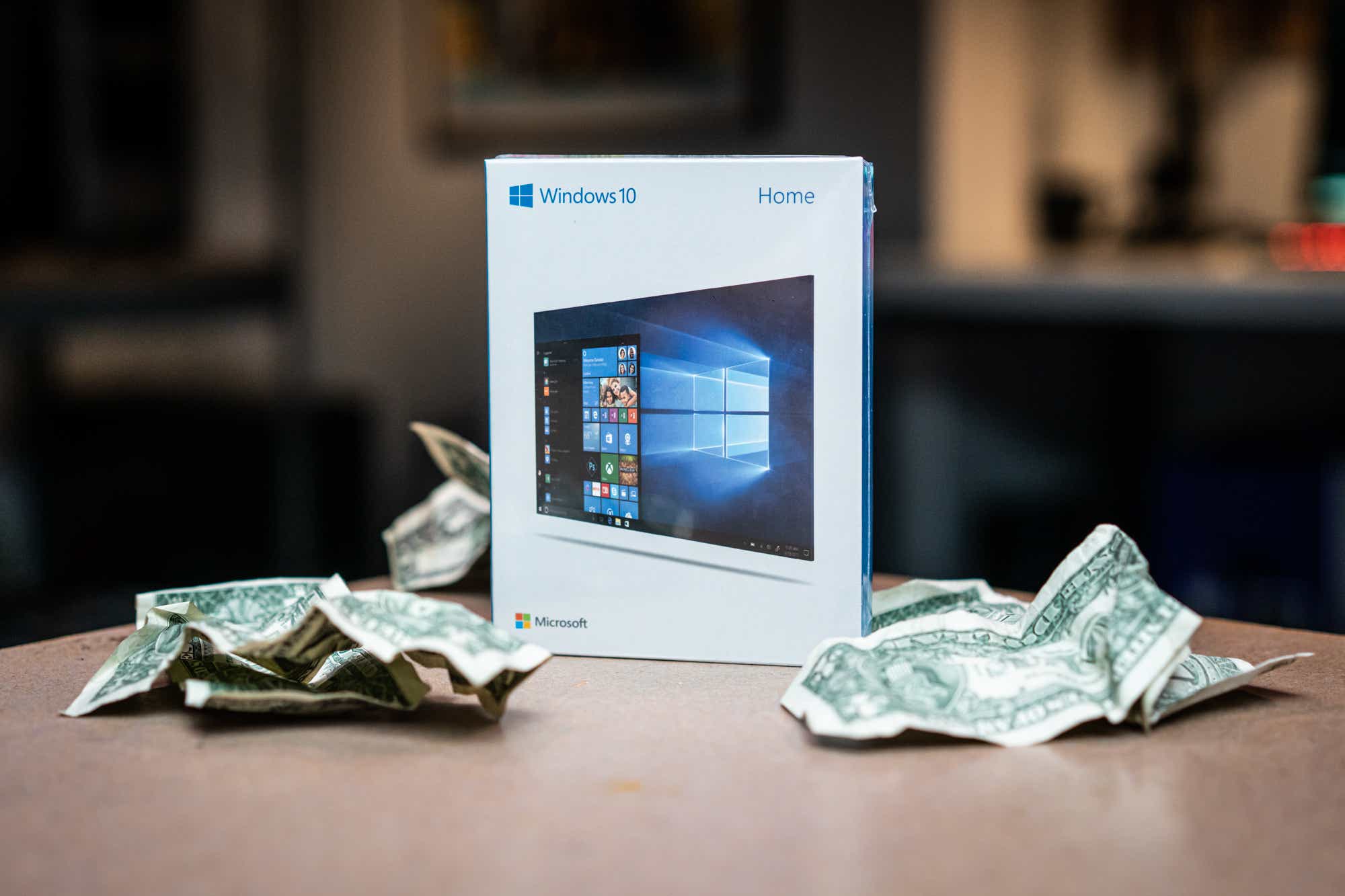
Is it worth it to upgrade to a paid version?
Nope—no premium alternative exists for Microsoft’s awesome collection of tools.
Malwarebytes Anti-Malware Free
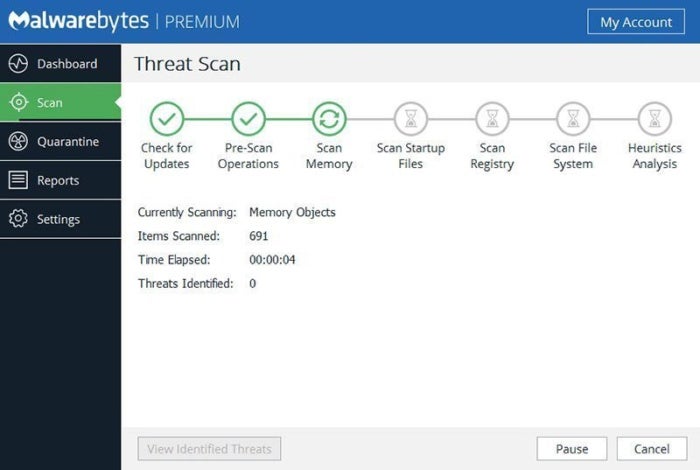
The Windows Security software enabled by default in Windows 10 and 11 provides solid protection for most users, but no single antivirus utility offers bulletproof protection, especially against the latest and most clever threats. MalwareBytes Anti-Malware Free was designed specifically to find and eliminate those cutting-edge “zero-day” vulnerabilities. You can’t schedule scans or even use it as a regular antivirus program, but it’s invaluable when you think that something nasty has slipped by your primary antivirus utility.
Is it worth it to upgrade to a paid version?
Yes. As the saying goes, “a few megabytes of prevention is worth a terabyte of cure,” or something like that. Malwarebytes is great at saving infected computers, but Malwarebytes Premium at $40 per year is on guard to stop the malware from getting in its hooks in the first place.
Beyond that, premium antivirus options offer a combination of excellent protection, a worthwhile selection of features (such as phishing protection and watching for credential leaks on the Dark Web), and minimal impact on your PC’s performance. PCWorld’s guide to the best antivirus for Windows PCs can walk you through your options.
Launchy
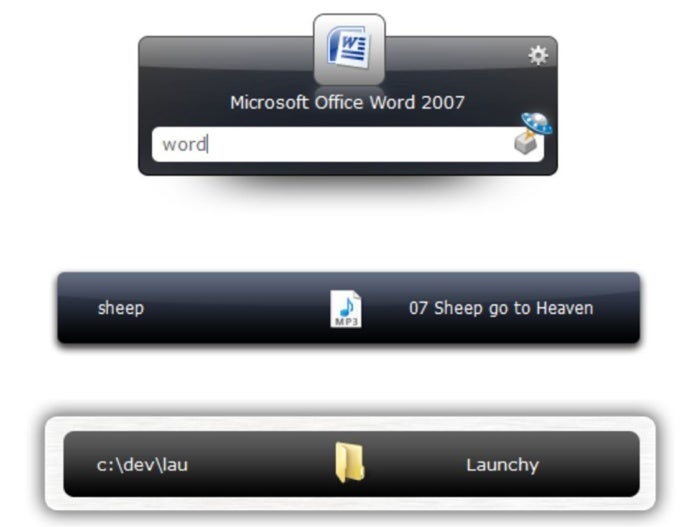
On the surface, Launchy is a simple app launcher, and that’s swell all on its own! App launchers let you activate software far faster than navigating Windows, even if you use the Windows key and search for an app by name. But Launchy can do much, much more: Open any file or folder in mere seconds, shut down your PC, or even kill processes and perform math calculations with the right plug-ins. Install Launchy and forget about your Start menu.
Is it worth it to upgrade to a paid version?
No. Launchy is another Windows utility that is unto itself; however, the developers do accept donations, and we highly recommend tossing the developers a few dollars for this excellent program.
7-Zip
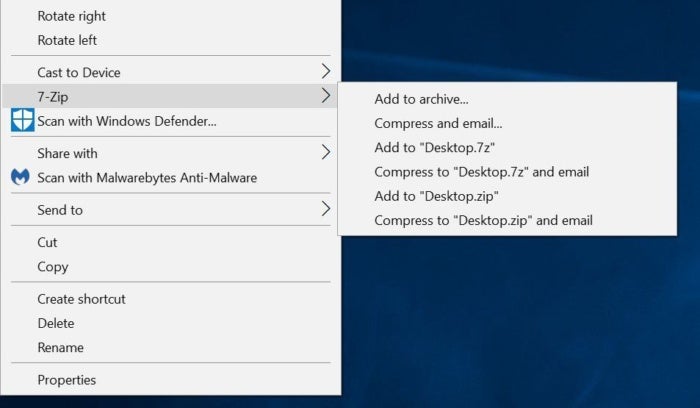
Windows can create and extract ZIP files natively, but if you find yourself staring at another compressed archive you’ll need a dedicated program to handle it. A lot of them cost money. 7-Zip is open-source and completely free, ready to perform all your archiving needs from Windows’ right-click context menu. You can even encrypt 7-Zip archives with a password to send them securely.
Is it worth it to upgrade to a paid version?
No. 7-Zip is great, and paid parallels such as WinZip really don’t offer enough to justify the fee. If you spend all day unzipping massive archive files then maybe a faster utility like WinZip is worth it. For most of us, however, 7-zip is just great — and Microsoft is working on integrating RAR and 7-Zip file support directly into Windows itself.
VLC

Windows 10 and 11 have a prickly problem: Unlike Windows 7, they’re incapable of playing DVDs out of the box. Your PC might have a DVD-playing program installed if you bought a boxed system, but if not, the simply wonderful VLC media player can play your flicks (and music, and podcasts, and…) for free. It can even play (some) Blu-ray discs with a little fiddling.
Is it worth it to upgrade to a paid version?
No. VLC is just fantastic, and you won’t find a paid option that justifies its worth compared to this free workhorse. You can, however, send the VideoLAN organization a donation as a thank you for its hard work.
Paint.net
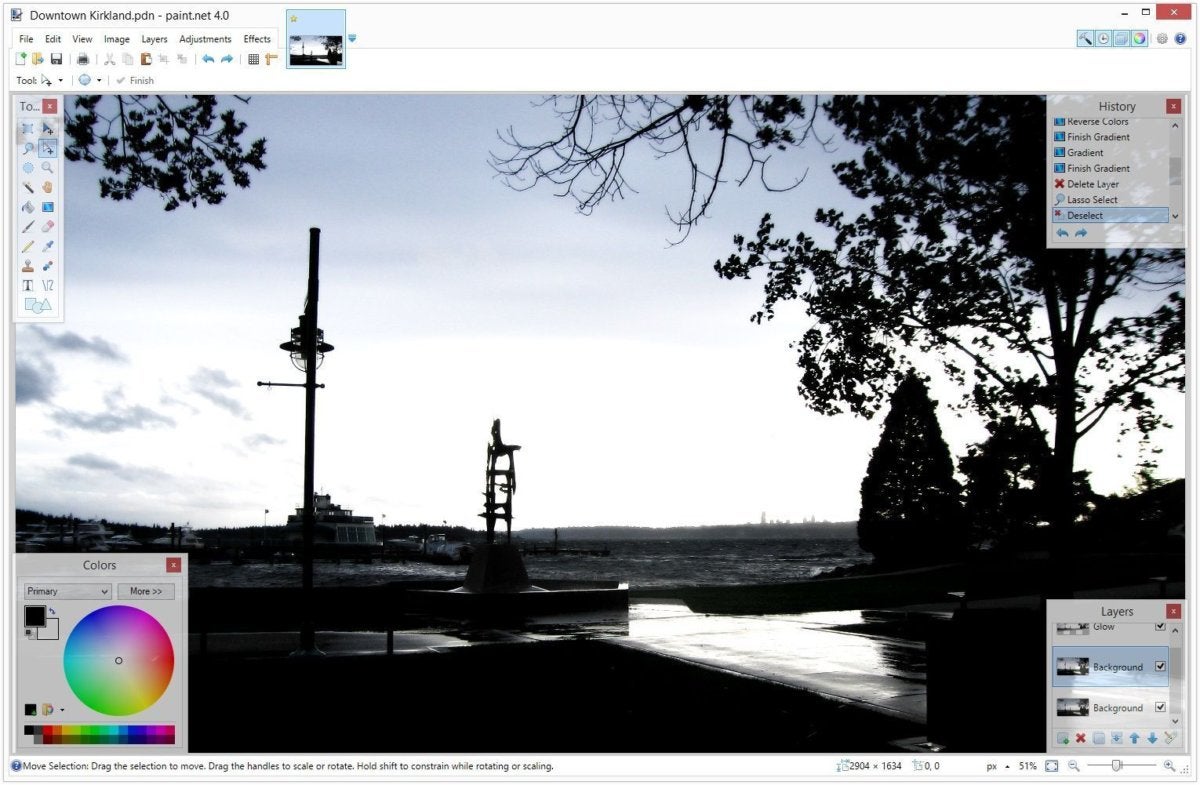
Don’t let Paint.net’s freebie status fool you: This image editor may not have all the bells and whistles of Photoshop, but it packs everything that most people need (even layer-based editing) and costs hundreds of dollars less. We’ve got Paint.net tips to help you get started with this killer no-cost software.
If you’re a graphics professional, and you can’t afford Photoshop but require more than Paint.net offers, check out GIMP. It has a challenging learning curve, but its capabilities are damned impressive once you wrap your head around it. Those aren’t your only options though. Check out our roundup of the best free Photoshop alternatives for more no-cost programs for everything from quick and dirty tweaks to nitty-gritty image edits.
Is it worth it to upgrade to a paid version?
Yes. Free image editors are generally great and GIMP is looking better than ever. But Adobe’s Photoshop remains the unrivaled titan for image editing, while its hobbyist level Photoshop Elements at $100 has advanced features that you won’t find in the free programs.
Audacity
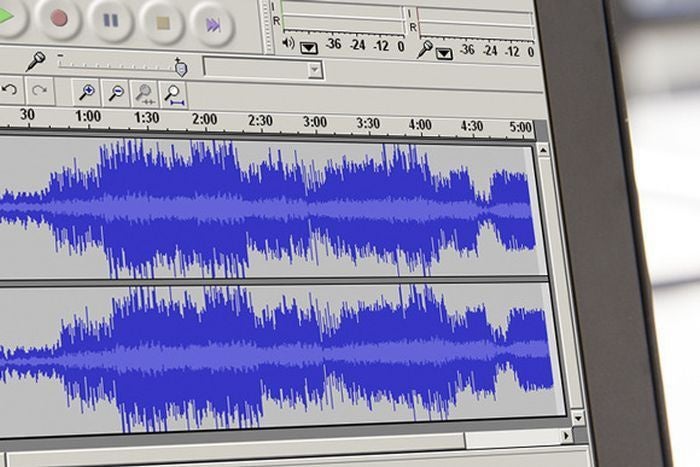
If you need to record or mix audio without spending big bucks on pro software, Audacity is hands-down the best option around. This powerful open-source audio editor offers excellent production capabilities—and a dizzying array of buttons and options. Snag it, then read PCWorld’s Audacity primer to wrap your head around the basics.
Is it worth it to upgrade to a paid version?
Maybe. For most users Audacity is a powerful tool, but if you’re rising to the level of semi-pro and need a deeper level of audio editing then Adobe’s Audition CC for $23 per month might be worth it. Keep in mind, however, that Adobe Audition is a pro tool and not a starter option.
Revo Uninstaller
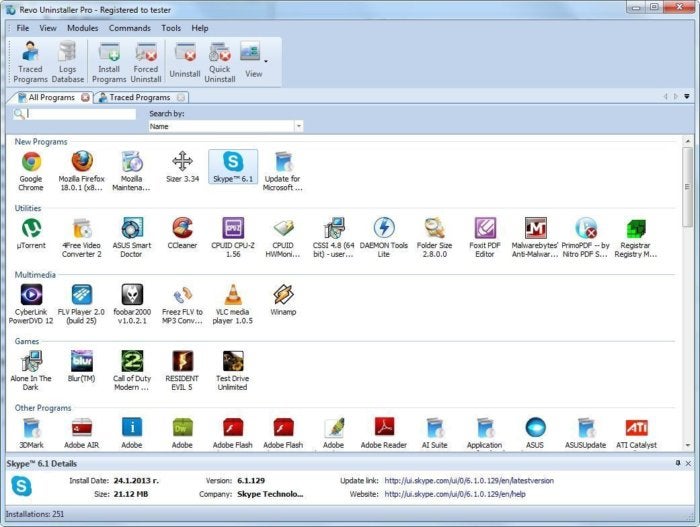
When you delete software using Windows’ default uninstallation utility, it can leave a lot of remnants behind in weird places, sucking up precious storage space. Revo Uninstaller wipes out everything. It’s great.
(Pro tip: If you encounter a program that says it can’t be deleted because it’s currently in use by your system, IOBit’s free Unlocker can loosen its grasp, as can Microsoft PowerTools.)
Is it worth it to upgrade to a paid version?
Yes. Revo uninstaller only takes care of the basics. If you need features like getting rid of remnants from previously uninstalled programs or mass uninstalls then spending $20 on Revo Uninstaller Pro or a $20 yearly subscription to Iobit Uninstaller Pro is worth it.
SpaceSniffer
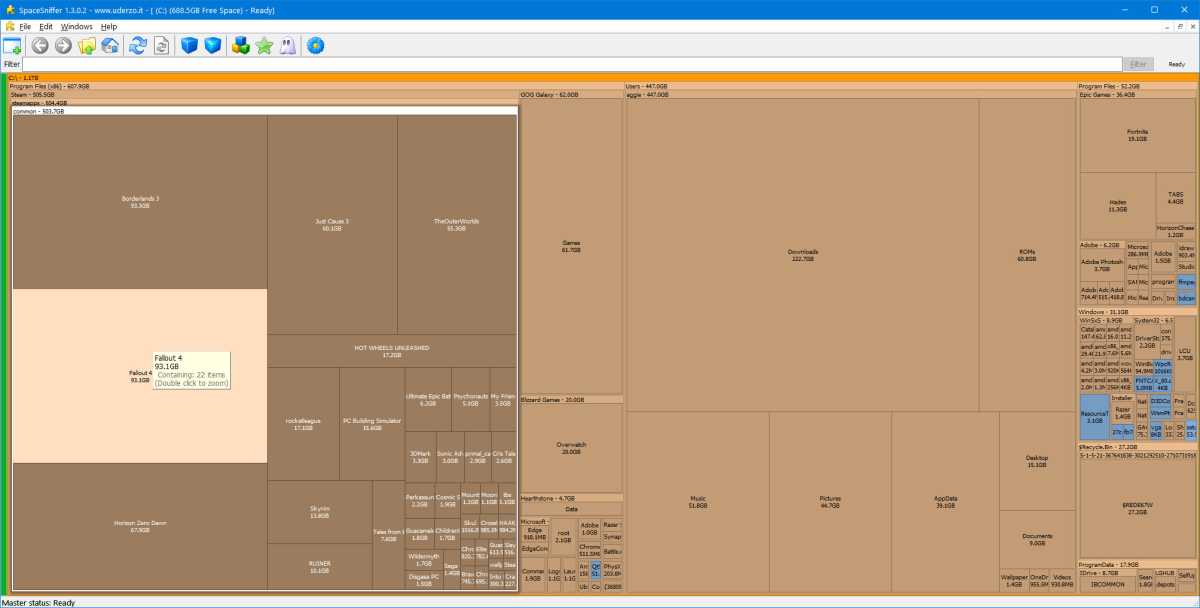
Michael Crider/IDG
Managing your computer’s storage space is kind of an all-or-nothing experience. Windows will tell you how much space is left on your drive, and that’s it; it’s up to you to dive into a million different directories and clear out the gunk when you’re running low on space. SpaceSniffer (try not to giggle) from Uderzo Software solves this by scanning an entire drive and presenting your files and folders in a visual grid, which makes it easy to find “lost” programs eating up huge chunks of your hard drive space. It’s one of the five Windows power tools we can’t live without.
WinDirStat is another free program that behaves similarly to SpaceSniffer. If you’re looking to free up some space for the latest massive game install, you’ll want one of these installed on your PC.
Is it worth it to upgrade to a paid version?
Nope. Enough said.
Recuva
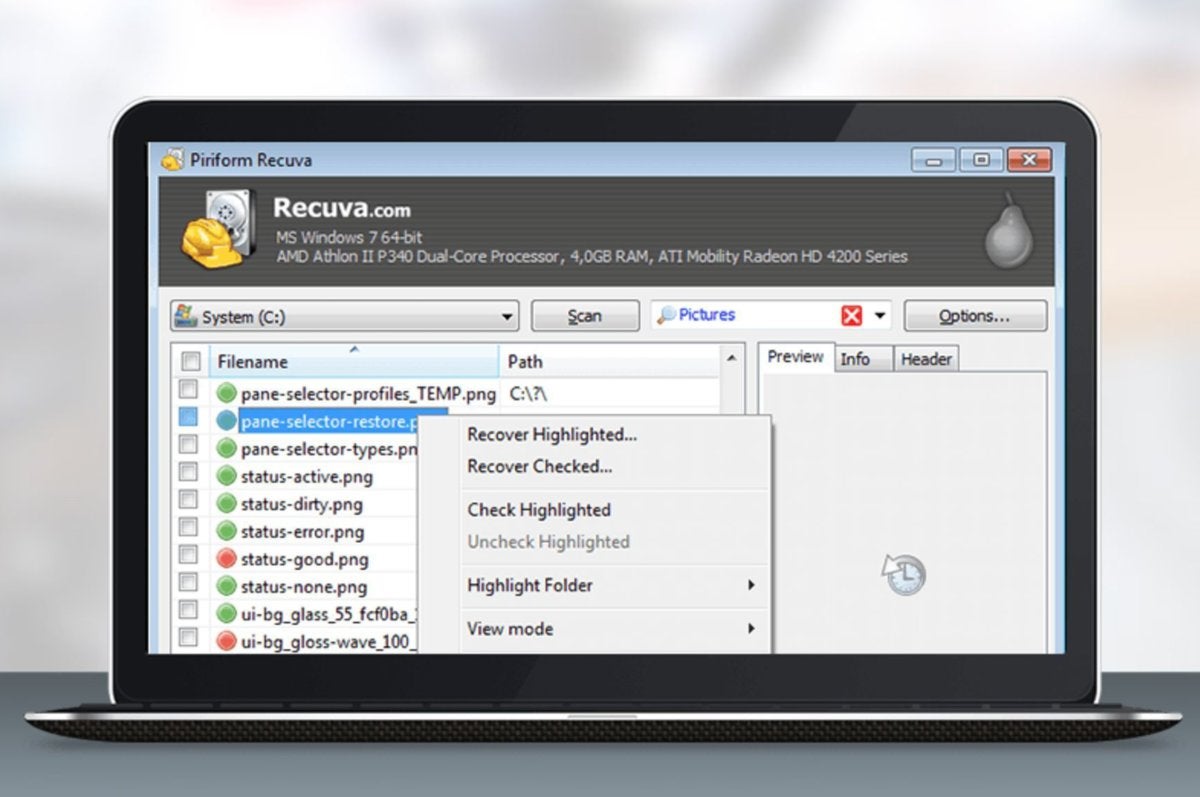
But what if you want to bring a deleted file back to the realm of the living? Recuva is a clean, simple undelete program from Piriform, the makers of CCleaner.
Be warned: Recuva won’t be able to recover all deleted files, and the odds are even lower if you erased a program with a secure delete tool like Eraser (another top-notch free program). Still, Recuva has saved my bacon on more than one occasion.
Is it worth it to upgrade to a paid version?
Maybe. Recuva helps you recover files, but if you want power user features like virtual hard drive support and automatic updates then the $20 for Recuva Pro might be worth it.
Sumatra PDF
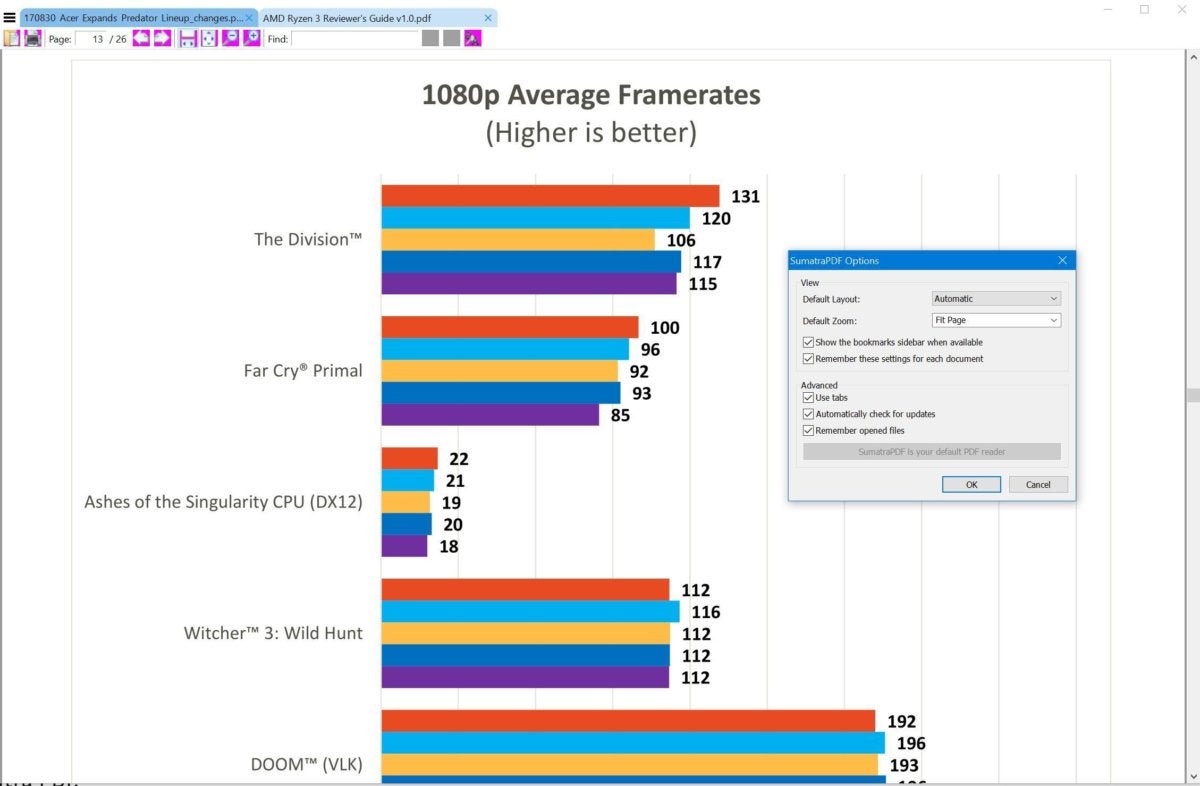
Adobe Reader may be the go-to PDF reader for many people, but it’s clunky, constantly updating, and frequently targeted by malware peddlers. If you need only basic functionality, go with Sumatra PDF instead. Sumatra lacks the fancy extras found in many full-featured PDF readers, but when it comes to straight-up reading Portable Document Format files, Sumatra PDF is blazing-fast and completely accurate. Oh, and since it’s less ubiquitous than Adobe’s offering, hackers tend to stay away from Sumatra PDF.
Is it worth it to upgrade to a paid version?
No. There are paid PDF readers such as Adobe’s Acrobat or Wondershare’s PDFelement. But they offer features that few people need such as the ability to edit PDFs, watermark, and annotate them.
If you must have these advanced features check out PCWorld’s guide to the best PDF editors.
Spotify or iTunes
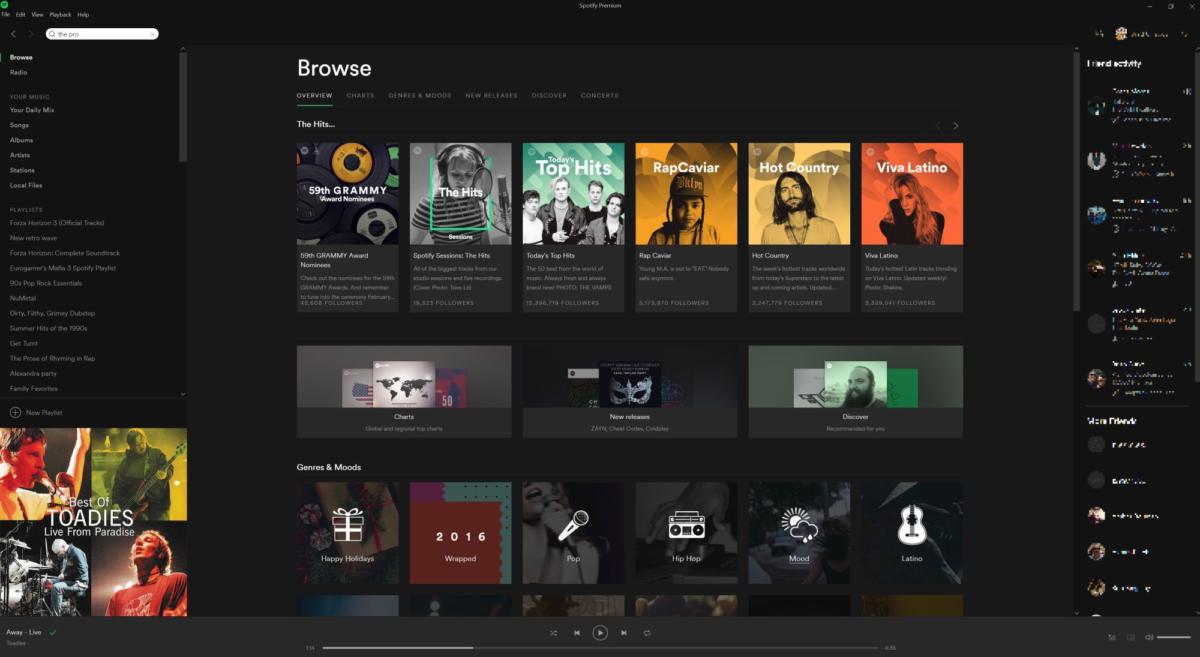
Sometimes, blasting tunes is the only thing that makes slogging through a spreadsheet or a stuffed inbox even remotely tolerable. The exact music client you’ll want will depend on whether you’ve already bought into a service, naturally. For musical neophytes I recommend two programs: iTunes and Spotify.
The iTunes Windows client notoriously sucks, but it gets the job done—and that job includes giving you access to a vast universe of premium music downloads and keeping your iPhone’s music library synced with your PC. Spotify, meanwhile, is an all-you-can-eat streaming service with millions of top-tier tunes available, all for free if you don’t mind listening to a few ads.
Is it worth it to upgrade to a paid version?
Yes. In fact, if my editors let me use “Hell Yes” as an option, I’d say, “Hell Yes!” You don’t need to be an audiophile to recognize the sound difference in the higher-quality versions Spotify and Apple Music premium subscribers get, plus no ads and the freedom to listen to your music anywhere? Sold.
A password manager
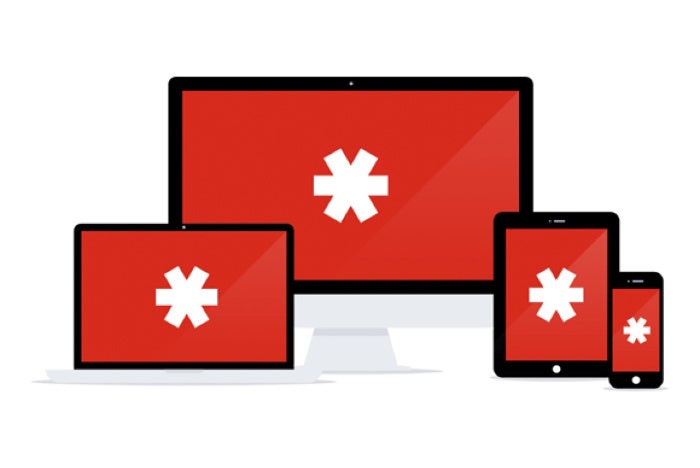
The high-profile hack attacks of the past few years have driven home the point: You need strong passwords, and you need a different password for each site you visit. Rather than juggling dozens of alphanumeric codes in your noggin, download a password manager.
There are several options available, but our favorite freebie is Bitwarden, a no-cost password manager with few restrictions (unlike the free offerings from premium favorites like LastPass and Dashlane). PCWorld’s guide to the best password managers and the best free password managers can help walk you through all the available options.
Is it worth it to upgrade to a paid version?
Yes. Password managers are important tools, but you need them on all your devices to be effective and that means paying for the service. Dashlane is the best password manager around hands-down, especially after rival LastPass suffered through several high-profile data breaches in recent years.
A productivity suite
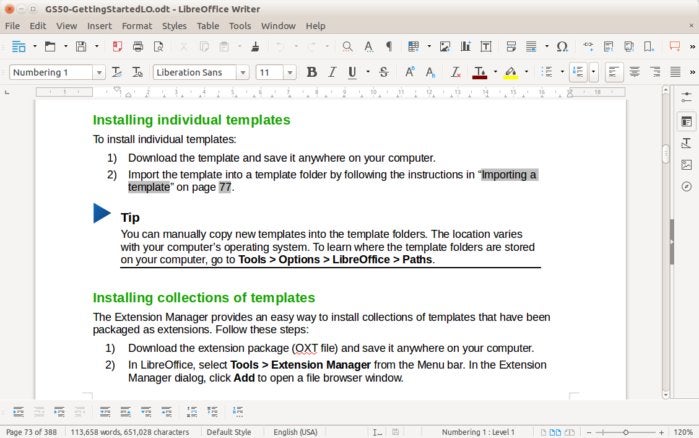
PCs excel at helping you Get Things Done—but few of them ship with a productivity suite installed. Fix that, stat! Even if you don’t plan to use a productivity suite regularly, it’s smart to have basic editing capabilities available on your computer.
Legions of people swear by Microsoft’s legendary Office; I do, too. But you don’t have to drop big dollars on Office if you don’t need its myriad bells and whistles. Free—and good—alternatives abound, with LibreOffice (pictured) being the flagship free-and-open-source option. The online-only Google Docs also rocks. PCWorld’s guide to the best free Microsoft Office alternatives explains your various options.
Is it worth it to upgrade to a paid version?
Maybe. You can get a lot done with LibreOffice or Open Office, or even Google Docs. But there’s a lot to be said for Microsoft’s subscription service, Office 365, with its added 1TB of OneDrive storage and monthly Skype minutes.
AutoHotKey
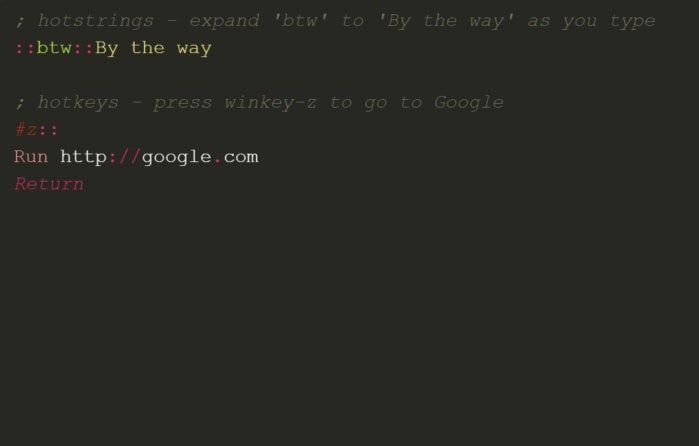
Macros sure are great in Microsoft Word and Excel, aren’t they? AutoHotKey lets you create customized keyboard shortcuts for any program or action on your PC. It’s not exactly beginner-friendly, as configuring AutoHotKey requires some very basic scripting, which most people will be able to pick up quickly enough. It’s downright magic once you wrap your brain around it though.
Is it worth it to upgrade to a paid version?
No. Even if you could pay for a pro version, why would you? But if you like keyboard shortcuts, Vimium is another great free option for adding keyboard controls to your browser.
Windscribe VPN
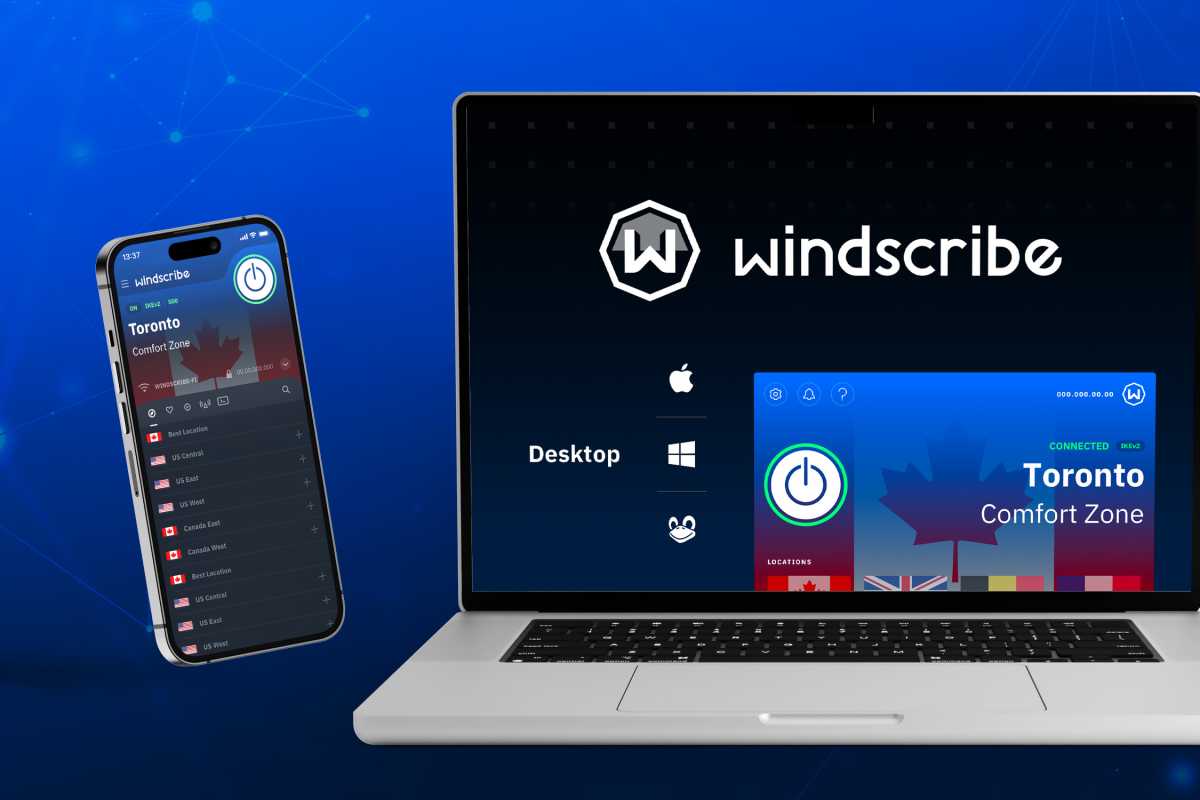
StackCommerce
Browsing websites and sending private data over open Wi-Fi hotspots is just begging for hackers to capture the details. Virtual private networks secure your connection. If you need to log in to your work website or email at Starbucks, use the free version of Windscribe, a VPN we love, to keep your data safe. It’s fast, easy to use, and has a straightforward privacy policy, unlike many VPNs.
The free version is limited to 10GB of data per month, though, with server connections limited to 10 countries.
Is it worth it to upgrade to a paid version?
Yes. This is another one where “Hell Yes!” would be appropriate. The free version of Windscribe is great, and we think it’s a trustworthy product, the monthly limit won’t let you use it often. There are numerous no-compromise paid VPNs to choose from. Check out our roundup of the Best VPNs to find the one that suits you. Our current top pick is ExpressVPN.
Free games!
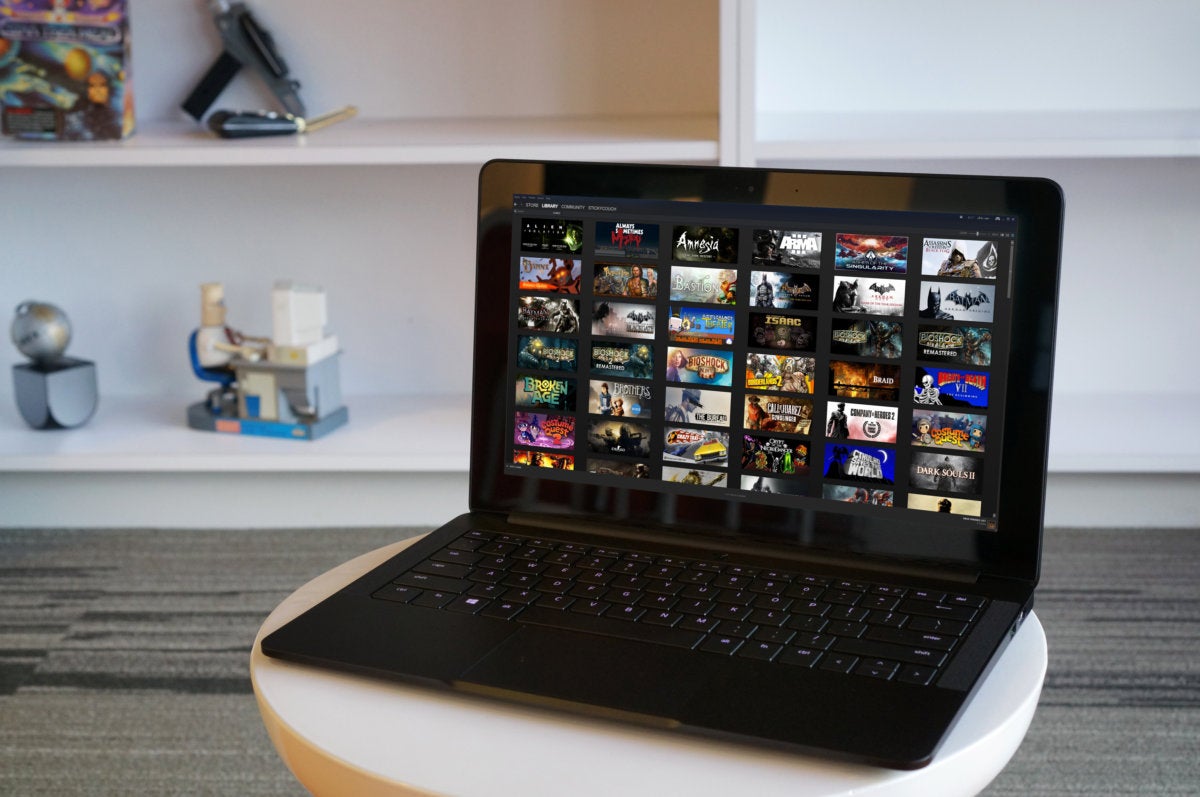
All work and no play makes Homer something something! Valve’s outstanding PC game marketplace, Steam, makes it easy to shrug off the stress of the workday and blow off some … well, you know. You’ll find tons of free games available on Steam, and games are frequently given away free for a limited time. If you want a steady stream of freebies, the rival Epic Games Store gives way a free game or two every single week.
Is it worth it to upgrade to a paid version?
Probably. Free games can only take you so far before you’re left wanting more. Steam, GOG, EA’s Origin, the Epic Games Store, and Blizzard can all satisfy your gaming needs once the free games aren’t enough.
Bonus: Back up your PC!
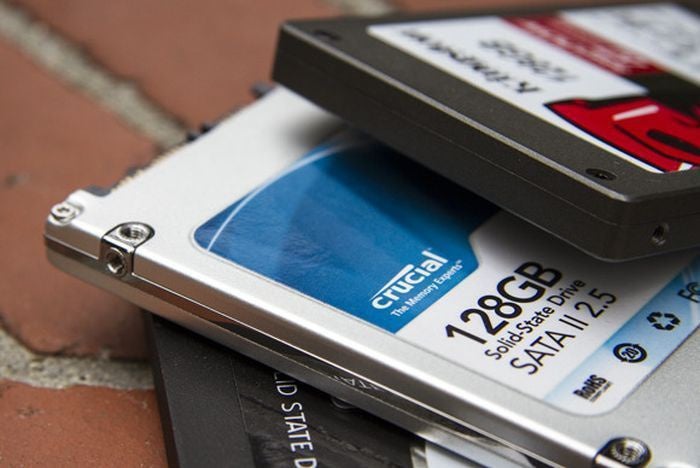
This isn’t an official recommendation because the best way to back up your PC for free is to use a hodgepodge of native Windows utilities and no-cost third-party solutions. But backing up your data is so vital—especially in this rising age of ransomware—that it needs to be highlighted here.
If the idea of using a mish-mash of tools makes you wince, check out PCWorld’s guide to the best Windows backup software for more options. You’re going to need some portable storage to stash your bits on, too. PCWorld’s best external drives roundup can help there.
Is it worth it to upgrade to a paid version?
Yes. The best strategy for backing up your PC isn’t just throwing your files on a hard drive over USB. You also need to have an online backup, and there are many services to choose from such as Backblaze, and Carbonite. Check out our guide to the best online backup services for more details.
Master your Windows PC
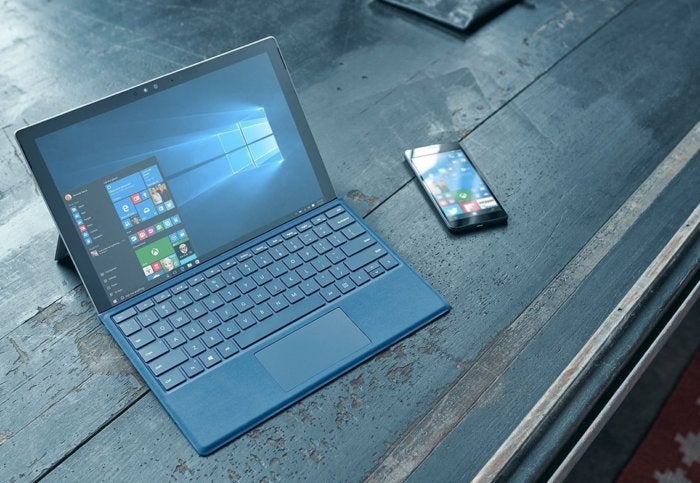
Now that you’ve loaded up your PC with the best free software around, it’s time to put Windows itself to work. Head on over to PCWorld’s guide to 10 obscure Windows features that will blow your mind to seize even more control over your PC for the low, low price of nothing.


